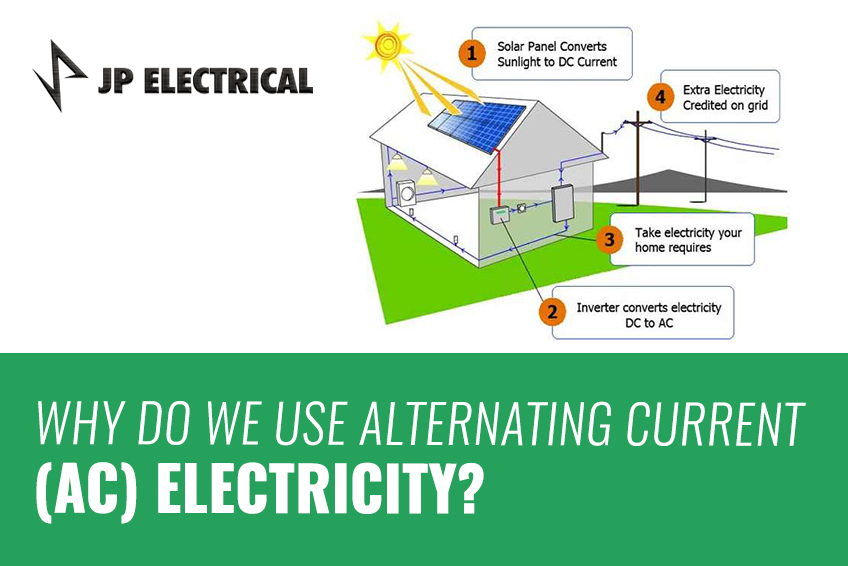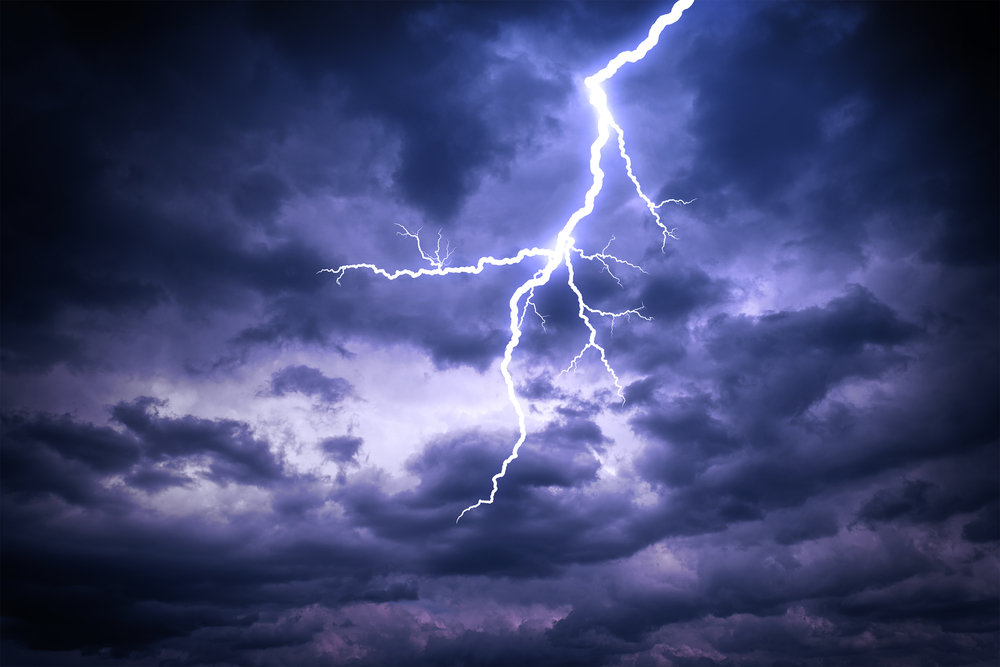Why Do We Use Alternating Current (AC) Electricity?
Posted on March 30, 2018 by Oozle Media
When you think about the electricity you use in your home, you’re probably not going to think about what type it is, where it comes from, and really even how it works. We get that. Electricity isn’t the most exciting of topics, no matter how much we personally love to talk about it…
However, it’s important to note that there is indeed a significant distinction between different types of electricity. If someone has ever mentioned that your home utilizes Alternating Current (AC) electricity, there’s a good reason for that. So whether you’re curious about the disparity between AC and Direct Current (DC) electricity or simply want to comprehend what AC current entails, we’re here to assist you. Read our guide to learn more!
The Beginning of Electricity
Before we can get anywhere, we’ve got to provide you with a brief history of electricity. We understand that not everyone likes a history lesson, but in order to understand where we are today, you need to know how we began. So let’s start with a quick recap:
It’s important to note that electricity itself was not invented by any individual. Rather, it is a natural phenomenon that has been known for centuries. Humans have always been aware of static electricity, such as the static shock experienced when touching certain objects. The understanding and harnessing of electricity progressed over time through the efforts of many scientists and inventors.
Benjamin Franklin conducted the famous experiment in the 18th century to demonstrate the electrical nature of lightning. Thomas Edison, on the other hand, is renowned for his contributions to the development of practical electric lighting systems. While Thomas Edison and Benjamin Franklin made significant contributions to the field of electricity, they did not invent it.
One of Thomas Edison’s most notable achievements was the improvement of electric lighting. He developed and patented a practical and commercially viable incandescent lightbulb, which played a crucial role in the widespread adoption of electric lighting systems.
The late 1800s and early 1900s indeed marked a period of rapid progress in the utilization of electricity. Alongside lighting homes, electricity began to power various other devices and industries, revolutionizing transportation, manufacturing, and communication. Many inventors and scientists, apart from Edison, contributed to these advancements, including Nikola Tesla, George Westinghouse, and others.
The Use of Direct Current Electricity
Following Edison’s contributions to the development of practical electric lighting, the generation and distribution of electricity became a promising industry. Initially, Direct Current (DC) was widely used for about two decades. However, Nikola Tesla, an advocate for Alternating Current (AC) electricity, played a significant role in its adoption.
Tesla invented a machine called the AC induction motor, which was capable of converting DC to AC power. Despite facing initial challenges and skepticism, Tesla’s AC system demonstrated its superiority over DC. AC electricity was found to be more efficient for long-distance transmission and could easily be transformed into different voltage levels, making it suitable for widespread use.
In 1896, AC was officially recognized as the preferred type of electricity for homes and businesses. The development of AC power systems and the establishment of AC as the standard form of electrical power owed much to Tesla’s innovations, as well as contributions of other scientists and inventors of that time.
The Difference Between AC & DC
Alternating Current (AC) electricity means that the electricity travels back and forth, rather than just in one direction like Direct Current (DC) electricity. The main factor that went into the choice of AC over DC was that AC is more efficient. Its ability to travel back and forth, gives it the ability to travel over longer distances. Thus making it able to power more homes. Additionally, it was easier and less dangerous to work with, which was a huge selling point when it was going to be used in the homes.
Today, in 2023, we’re still using AC electricity for most of our homes and businesses. We also are continuing to use DC electricity, but rarely. DC power is produced by all modern solar panels, though that power is then changed to AC using a transformer so homes and businesses can use it. DC power is used in car batteries, portable solar systems, and any low-current applications.
Call JP Electrical for All Your Electricity Needs
We’re lucky to have such a manageable way to power our homes and devices! However, that doesn’t mean it’s safe or that anyone can do electrical work if a problem arises. That’s where JP Electrical’s professional electricians come in handy. It’s important to schedule a professional to make any changes or maintain your electrical systems within your home or business.
We can handle any job you have, and we always ensure we’ve done an excellent job. Learn more about our services and give us a call today!
Categories: Electrical Maintenance • Energy Efficient



